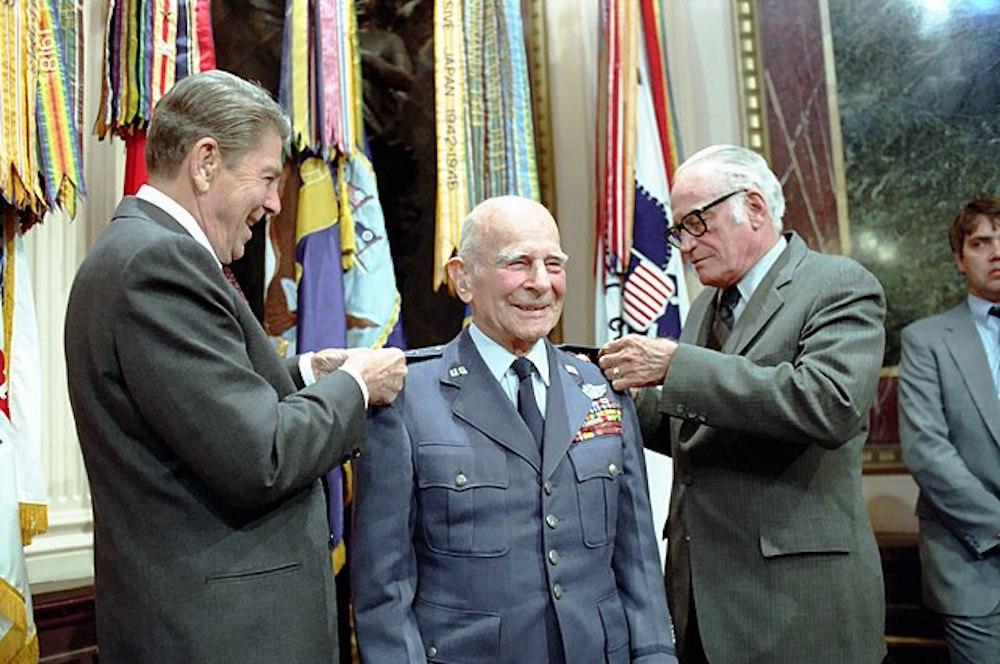
In 1942, following a series of Japanese victories, including at Pearl Harbor, U.S. pilot James "Jimmy” Doolittle led a daring bombing raid over Tokyo. It was the first American attack on the Japanese mainland. After Doolittle’s 16 planes (of volunteer crews) dropped their bombs, they were forced to crash-land in other countries because they lacked fuel to return to their carrier. This Hollywood-esque mission not only earned Doolittle the Medal of Honor from President Franklin D. Roosevelt, but it made him a household name in America, at a time when the country needed inspiration the most. However, while Doolittle is celebrated for his service as a military pilot, he may have contributed even more as a pioneer aviator. The flying ace is credited with making some of the first coast-to-coast flights, record-breaking speed flights, and aviation's first "blind" flight, i.e., relying only on instruments to guide him from start to finish. Following his lengthy career, the U.S. Congress promoted Doolittle to the rank of full four-star general. For his 50+ years of extraordinary military service, Doolittle also received the Presidential Medal of Freedom, two Distinguished Service Medals, the Silver Star, three Distinguished Flying Crosses, the Bronze Star Medal, and four Air Medals, among others. He is also one of only two persons to receive both the Medal of Honor and a British knighthood.
Before becoming one of the most famous pilots in America, Doolittle was just another college kid trying to make it on the campus of the University of California—Berkeley. After attending a junior college in Los Angeles, he transferred to Berkeley to study mining engineering. The year was 1916 and on top of his studies, he was also a member of Theta Kappa Nu fraternity, which would merge into Lambda Chi Alpha during the later stages of the Great Depression. However, with the U.S. entry into World War I, Doolittle left school and enlisted in the Signal Corps reserve as a flying cadet in October 1917. After completing these courses in the military, Doolittle was permitted to return to Berkeley, where he completed his undergraduate degree in 1922.
As a Berkeley graduate, Doolittle remains one of the university's most decorated alumni. He also holds the distinction of being the recipient of the very first "Alumnus of the Year" award, which was granted to the pioneering pilot in 1943 by his alma mater. Today, the award continues to be given annually to members of the Berkley community who, not unlike Doolittle, continue to bring the university honor through extraordinary accomplishments.
